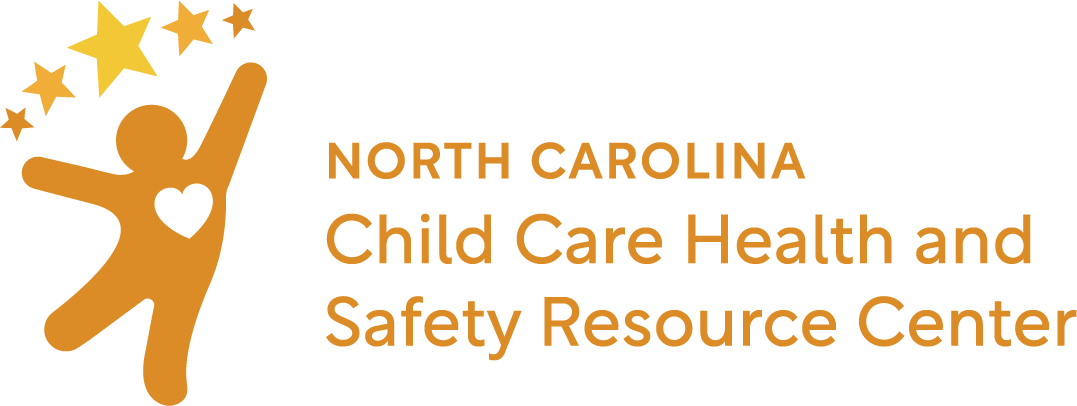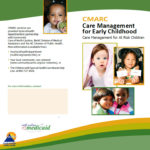Children with Special Health Care Needs
Child Care Health Consultant Competency 7: Children with Special Health Care Needs
(Source: Early Childhood Learning & Knowledge Center, Child Care Health Consultant Competencies)
The CCHC supports programs and families to ensure that children with a special health care need and/or chronic health condition have full, safe inclusion in the ECE program. A CCHC also:
- Keeps up-to-date on relevant knowledge to serve as a resource on caring for children with special health care needs and/or management of chronic health conditions
- Helps programs understand how to meet their responsibilities to provide services in accordance with the Americans with Disabilities Act (ADA)
- Supports programs in planning for and fully accommodating children with special health care needs including chronic physical health and mental health conditions so they can be included in all possible activities
- Collaborates with programs to develop and implement individualized healthcare plans in partnership with the child’s family, health care provider, and identified specialists, if applicable
- Connects programs and families with resources for children with special health care needs and/or chronic physical health or mental health conditions
- Supports transition planning between the ECE settings and kindergarten
Find a CCHC in your community.
Featured Initiatives and Resources
 The Infant-Toddler Program provides supports and services for families and their children, birth to three who have special health care needs. Sixteen Children’s Developmental Services Agencies (CDSAs) across North Carolina work with local service providers to help families help their children succeed.
The Infant-Toddler Program provides supports and services for families and their children, birth to three who have special health care needs. Sixteen Children’s Developmental Services Agencies (CDSAs) across North Carolina work with local service providers to help families help their children succeed.Additional Resources
State
- Community Alternatives Program for Children (CAP/C)
CAP/C is a Medicaid Home and Community-based Services (HCBS) waiver program. Provides a cost-effective alternative to institutionalization for a Medicaid beneficiary who is
medically fragile and at risk for institutionalization if home- and community-based services approved in the CAP/C waiver were not available. - Disability Rights North Carolina (DRNC)
DRNC is a legal advocacy agency that fights for the rights of people with disabilities in North Carolina. - Exceptional Children’s Assistance Center (ECAC)
ECAC help parents navigate the special education system, know their rights, and use their voice. ECAC provides information, support, training, and resources to assist families caring for children with special needs from birth to age 26.
- Family Support Network of North Carolina (FSN)
The mission of Family Support Network of North Carolina is to promote and provide support for families with children who have special needs. - Hope4NC Helpline
Hope4NC is a helpline that connects North Carolinians with emotional support and mental health resources to help build coping skills and resilience during times of crisis. The helpline is available free of charge to everyone in North Carolina’s 100 counties. Get the SCOOP on Managing Stress. - National Alliance on Mental Illness (NAMI) – North Carolina
NAMI provides advocacy, education, support, and public awareness so that all individuals and families affected by mental illness can build better lives. - NC Assistive Technology Program (NCATP)
NCATP is a state and federally funded program that provides assistive technology services statewide to people of all ages and abilities. - NCCare360
A helpline that provides community resources and services to individuals within NC.
- NC Office on Disability and Health
The North Carolina Office on Disability and Health promotes the health and well-being of people with disabilities in North Carolina by working to improve access and inclusion in public health programs, addressing health disparities and promoting health equity. - NC RAAMP: Ramp Access Makes Mobile People
The NCRAMMP Project loans portable ramps to people with mobility difficulties.
- Women and Children’s Health (WCH):Children and Youth with Special Health Care Needs
This website provides resource information for families and/or caregivers of children and youth with special health care needs who have a new diagnosis and/or have concerns or questions about their child’s development.
National
- Americans with Disabilities Act (ADA)
This website has information and technical assistance on the Americans with Disabilities Act (ADA).
- Commonly Asked Questions About Child Care Centers and the Americans with Disabilities Act
This website provides answers from the U.S. Department of Justice to some of the most frequently asked questions about the ADA. - Council for Exceptional Children (CEC)
The CEC is a professional association of educators dedicated to advancing the success of children with exceptionalities. The council accomplishes the mission through advocacy, standards, and professional development. - Early Childhood Learning and Knowledge Center (ECLKC)
This website provides training and technical assistance resources from Head Start’s ECLKC that offer guidance for early educators and promote early childhood development, teaching, and learning for children with disabilities. - Early Childhood Technical Assistance Center (ECTAC)
ECTAC supports efforts to improve service systems and assist states in scaling up and sustaining effective services and research-based interventions for infants, toddlers and preschoolers with disabilities and their families. - Epilepsy Foundation
- The Epilepsy Foundation provides community services, public education, federal and local advocacy, and seizure first aid training.
- Head Start Center for Inclusion (HSCI)
The goal of the Center is to increase the competence, confidence, and effectiveness of personnel in Head Start programs to include children with disabilities. Visit the Center for training materials, tools for caregivers/teachers and coordinators, as well as other resources. - Learn the Signs. Act Early
CDC’s “Learn the Signs. Act Early” program encourages parents and early educators to learn the signs of healthy development, monitor every child’s early development, and take action when there is a concern. The program offers free checklists and other tools to make developmental monitoring practical and easy. - National Professional Development Center on Inclusion (NPDCI)
NPDCI works with states to ensure that early childhood teachers are prepared to educate and care for young children with disabilities in settings with their typically developing peers.


